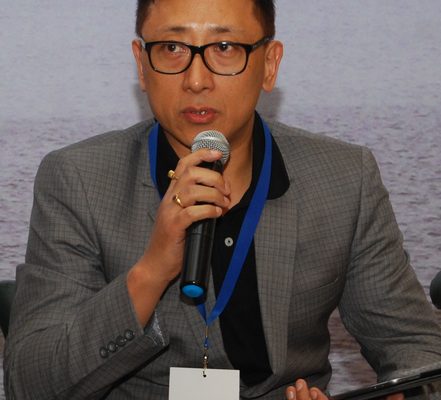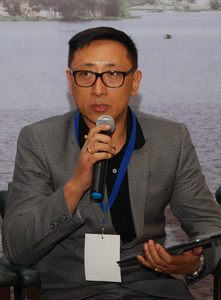Spotlight on Siliguri – Interview with Mr Sonam W Bhutia (WBCS-Exe), Commissioner, Siliguri Municipal Corporation

Siliguri is a city in the foothills of Himalayas in the north-eastern part of the country. In this conversation, Mr Sonam W Bhutia, Commissioner (WBCS-Exe), Siliguri Municipal Corporation talks about the city’s challenges and efforts towards sustainability. Edited excerpts:
What is the idea of sustainability for Siliguri? How does the city plan to be a climate resilient, sustainable city in the future?
The second largest city in West Bengal is making several efforts to integrate eco-friendly modes of transport, manage waste that affects the environment by choking the water bodies and drainage lines, and build capacities of its citizens as well as municipal officials. We realise that by building capacities of the officials, we can help to take the message of sustainability forward. Towards this, we are encouraging increased private sector participation in offering municipal service delivery. We also believe that it will be important to involve the young citizens in this journey. Simultaneously, it is imperative that locally suitable and contextualized methods, technology and materials be adopted for a sustainable future. Since Siliguri is prone to disasters like floods and earthquakes, it is more important to build the resilience of its people through various efforts. Particularly, it would be important to integrate earthquake resistant development with climate resilient development if Siliguri intends to walk the path of sustainability. We are in the process of finalizing a set of action plans for different sectors of municipal administration, which we believe can help achieve the various sustainability goals of the city. For example, the Detailed Project Report for the Solid Waste Management has been finalized in January, 2017. Similarly, the City Sanitation Plan will be confirmed soon.
Please list a few challenges faced by the city.
The city faces immense pressure that comes from unplanned growth, absence of adequate solid waste management facilities and efficient drainage network. Lack of awareness comes as another challenge. For example, the city has not been able to sustain doorstep segregation of solid waste that it once initiated and could have taken forward by generating more awareness. Situated on the foothills of Himalayas, Siliguri is also a tourist destination for many and acts as a transit point for inter-city/inter-state boundaries connecting neighbouring countries of Bhutan and Nepal. Presently, the city faces heavy traffic congestion, more so because of the not so broad roads of the city.
Which activities is the city engaged in through the SDC supported CapaCITIES project?
Under a few pilot projects, through the SDC supported CapaCITIES, Siliguri is planning to get a couple of acoustic leak detection machines for detecting leaks in the drinking water pipelines, few air quality monitoring systems for the city, and development of a couple of model wards to showcase best practices in solid waste management. We shall also be looking at some mobility-related initiatives to ease the congestion on city’s roads.
In another independent initiative, the Siliguri Municipal Corporation will soon issue Temporary Identification Number (TIN) to e-rickshaws in the city, as per recent directions from the Government of West Bengal (GoWB). At present there are two kinds of e-rickshaws plying in the city. One, in which the manufacturer has an authorization from the Government of India, and another, whose manufacturers do not have the authorization. The Siliguri Municipal Corporation would be issuing TIN to the latter kind, in an attempt to segregate them from the former. Following this the former would be registered under the Department of Transport, GoWB. A decision would then be taken towards the latter.
We hope that the city will benefit from these initiatives in many ways, particularly the initiatives would help in the reduction of the carbon footprint of the city; and will continue to take them forward.
